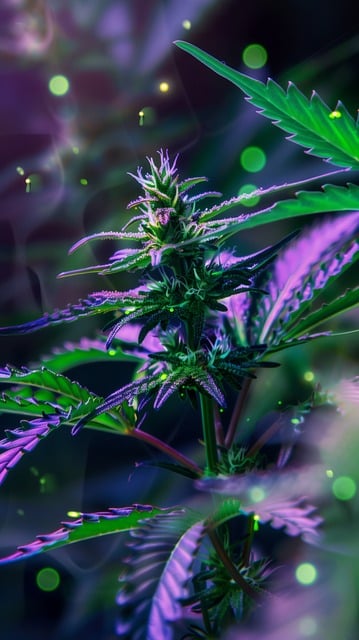∆9-tetrahydrocannabinolic acid (THCA), a non-psychoactive cannabinoid found in cannabis plants, has a unique legal status in Hawaii. Despite being classified as a Schedule I controlled substance under federal law, THCA is legally permitted for medical and adult-use consumption within the state's regulated framework, thanks to its potential therapeutic attributes like pain relief and anti-inflammatory properties. In Hawaii, THCA flower derived from hemp with less than 0.3% Delta-9-THC is legal, as outlined by both the 2018 Farm Bill and state-specific regulations. These laws provide clarity for consumers and businesses on the cultivation, sale, and possession of hemp-derived THCA flower, ensuring it is differentiated from marijuana under state law. The state's favorable climate has led to the careful cultivation of high-THCA strains by local farmers who adhere to strict growing conditions to maintain THCA's integrity before a precise harvest and curing process. This ensures that the final product retains its potential benefits while remaining within legal limits, making THCA a significant focus in Hawaii's evolving cannabis industry and health applications.
Explore the multifaceted world of THCA flower, a non-psychoactive cannabinoid that’s gaining attention in Hawaii for its therapeutic potential and nuanced legal status. This comprehensive article delves into the intricacies of THCA, from its chemical makeup to the regulatory framework governing its use. We’ll journey through the historical evolution of THCA legislation, understand what distinguishes it from other cannabinoids, and explore how it fits into Hawaii’s unique cultural landscape. Join us as we unravel the mysteries of THCA flower, its cultivation, consumption methods, and the future it holds in this vibrant state. Whether you’re a curious consumer or an advocate for responsible use, this article will provide valuable insights into THCA’s role and the steps to responsibly enjoy its benefits.
- Unlocking THCA Flower's Potential: A Deep Dive into Its Legal Status in Hawaii
- The Chemical Compound at the Heart of THCA Flower: An Overview
- Historical Context: The Evolution of THCA Legislation in the United States and Hawaii
- Understanding THCA: What Sets It Apart from Other Cannabinoids?
- Cultivation and Harvesting: The Process Behind Growing Legal THCA Flower in Hawaii
Unlocking THCA Flower's Potential: A Deep Dive into Its Legal Status in Hawaii
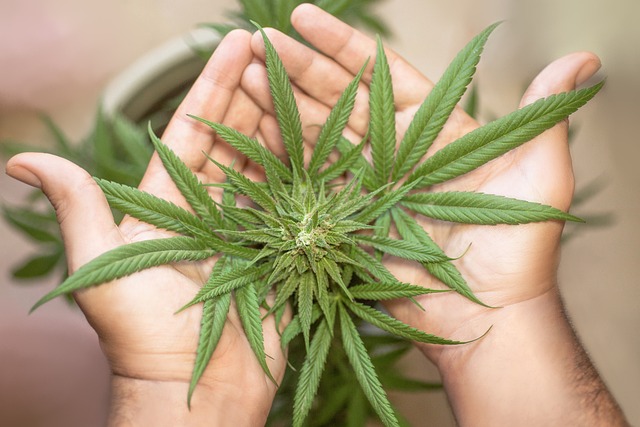
unlocking THCA flower’s potential offers a fascinating exploration into the cannabinoid realm. In Hawaii, the legal status of THCA flower is defined by the state’s comprehensive legislative framework that distinguishes between hemp-derived and marijuana-derived products. As per the 2018 Farm Bill and subsequent amendments, hemp-derived THCA flower containing less than 0.3% Delta-9-THC is legal federally and in Hawaii, provided it is sold and labeled appropriately. This distinction is crucial for consumers and businesses operating within the state, as it allows for the cultivation, sale, and possession of hemp-derived THCA flower without the same regulatory considerations as marijuana. The Hawaiian legislature has further refined this by passing its own set of regulations to oversee the production and distribution of these products. These regulations ensure that THCA flower remains accessible to those seeking its potential wellness benefits while maintaining public safety and health. Consumers in Hawaii can thus enjoy THCA flower’s potential, knowing that it is within the bounds of the law, as long as they adhere to the established guidelines and limitations.
The Chemical Compound at the Heart of THCA Flower: An Overview
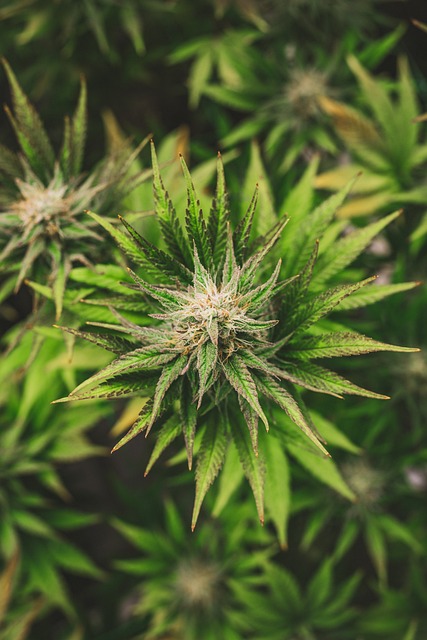
∆9-tetrahydrocannabinolic acid (THCA) is the precursor to the well-known psychoactive compound, ∆9-tetrahydrocannabinol (THC), found in cannabis flowers. THCA is non-psychoactive but possesses many of the same medicinal properties as THC once it is heated and decarboxylated. The legal status of THCA flower varies by jurisdiction, with specific considerations such as the THCA legal in Hawaii, where possession and use are regulated under state law. In Hawaii, THCA is considered a schedule I controlled substance under federal law, but the state has established its own medical cannabis program and adult-use legalization, allowing for the cultivation, sale, and consumption of cannabis products, including THCA flower, within certain parameters.
The interest in THCA flower stems from its potential therapeutic benefits, which include pain relief, anti-inflammatory properties, and neuroprotective effects. Unlike its psychoactive counterpart, THC, THCA does not induce euphoria or alter consciousness, making it a preferable option for individuals seeking the health benefits of cannabis without the psychoactive experience. The legal landscape around THCA flower is complex, with state laws like those in Hawaii creating a nuanced environment where the use and possession of THCA-rich products are permitted under specific conditions. As such, understanding the legal distinctions between different cannabinoids is crucial for consumers and producers alike, ensuring compliance with both federal and state regulations.
Historical Context: The Evolution of THCA Legislation in the United States and Hawaii
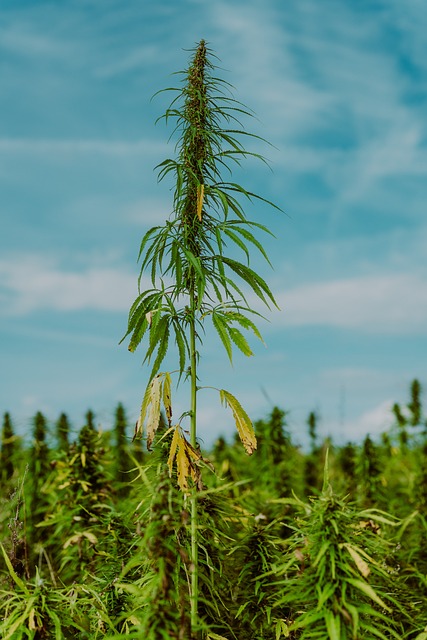
The evolution of THCA legislation within the United States and particularly in Hawaii has been a nuanced journey, reflecting broader shifts in public opinion and legal policy regarding cannabis. Initially, at the federal level, cannabis, including its various forms like THC-A (tetrahydrocannabinolic acid), was classified as a Schedule I substance under the Controlled Substances Act of 1970, categorizing it as having no accepted medical use and a high potential for abuse. This classification significantly restricted research and limited the legal status of cannabis across the nation.
However, attitudes towards cannabis began to change in the late 20th and early 21st centuries, leading to state-level legislative changes. In 1996, California made history by becoming the first state to legalize medical marijuana, paving the way for others to follow suit. The movement towards decriminalization and legalization gathered momentum, with states adopting various policies ranging from full recreational use to more restrictive medical programs. Hawaii, known for its progressive stance on cannabis policy, took a significant step in 2000 when it approved the use of medical marijuana under Senate Bill 862. This act allowed qualified patients to legally possess and use cannabis for medical purposes, marking the beginning of a more compassionate approach to cannabis therapy in the state.
In 2015, Hawaii further clarified its stance on cannabis when it passed House Bill 321, which established the Medical Cannabis Dispensary Program. This legislative action not only recognized licensed dispensaries to provide THCA and other forms of medical marijuana but also set forth regulations and standards for their operation. It was a defining moment in Hawaii’s history with THCA becoming legally recognized for its potential therapeutic benefits within the state’s medical cannabis program. The journey towards legalizing THCA in Hawaii underscores the evolving nature of cannabis legislation, reflecting a gradual shift towards recognizing the value and potential of this non-psychoactive compound in the realm of medical treatments.
Understanding THCA: What Sets It Apart from Other Cannabinoids?
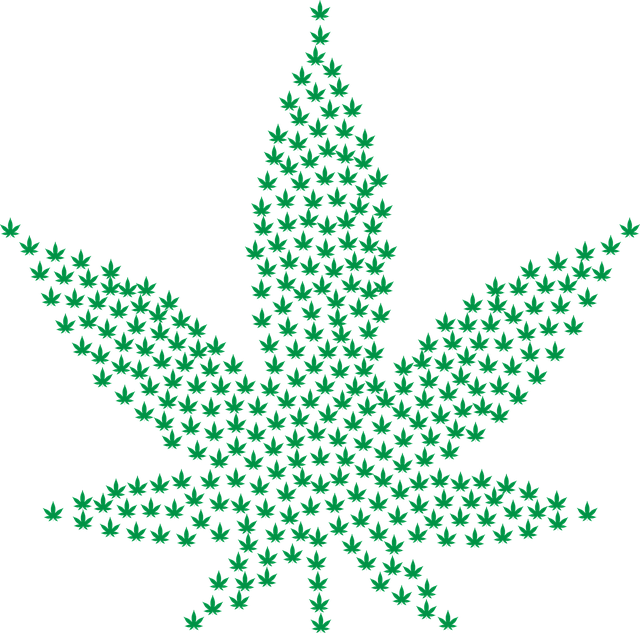
THCA, or Tetrahydrocannabinolic Acid, is a natural cannabinoid found in the Cannabis sativa plant, which exists in raw or uncured cannabis. Unlike its well-known counterpart THC (Tetrahydrocannabinol), THCA is non-psychoactive and holds a unique position within the cannabinoid spectrum. The legal landscape of cannabis varies across regions, with Hawaii being one of the states where certain forms of THCA are legally recognized. In Hawaii, THCA is considered legal as part of hemp legislation, provided it contains less than 0.3% THC by dry weight. This distinction is crucial for consumers and patients who seek the potential therapeutic benefits associated with THCA without the psychoactive effects that come with THC. Research suggests that THCA may offer anti-inflammatory, anti-nausea, anti-emetic, and neuroprotective properties, making it a subject of interest in various health applications. As such, understanding the nuanced differences between THCA and other cannabinoids is essential for those in the medical and recreational cannabis industries, as well as for consumers looking to explore the full potential of hemp-derived products. The unique characteristics of THCA not only set it apart from other cannabinoids but also present a promising area of research with implications for health and wellness.
Cultivation and Harvesting: The Process Behind Growing Legal THCA Flower in Hawaii
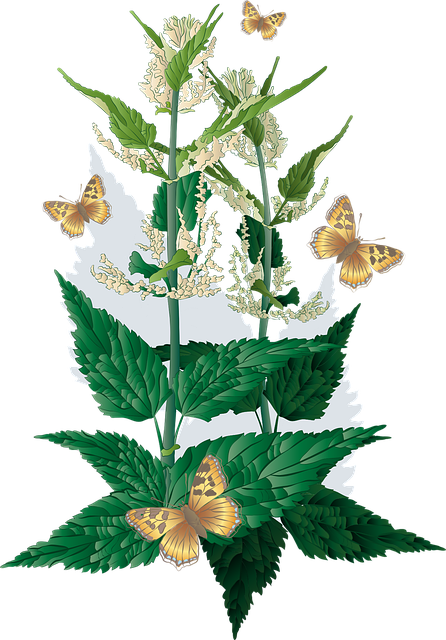
In Hawaii, the cultivation and harvesting of legal THCA flower is a practice that has gained significant attention due to its medicinal properties and the state’s favorable climate for cannabis growth. The process begins with selecting the right strain of cannabis that contains high levels of THCA, the non-psychoactive precursor to THC found in raw cannabis. Farmers in Hawaii leverage the island’s abundant sunlight and rich volcanic soil to nurture these plants. The cultivation process is meticulous, involving seed selection, climate control, pest management, and ensuring that the plants receive optimal nutrients for THCA development.
Once the THCA flower reaches maturity, the harvesting phase commences with care and precision. Harvesters must carefully handle the plants to avoid degrading the valuable THCA compounds. This is particularly important in Hawaii where the humid climate can quickly convert THCA into THC upon drying if not managed correctly. The flowers are typically hand-trimmed to preserve the trichomes that contain the THCA. After harvest, the flowers undergo a curing process designed to maintain their potency and enhance their therapeutic effects. This process is critical for producing high-quality THCA flower that adheres to Hawaii’s strict legal standards. The end result is a product that offers the potential wellness benefits of THCA in a legal manner, reflecting the careful cultivation and harvesting techniques employed by Hawaii’s cannabis farmers.
The exploration of THCA flower has shed light on its distinct properties and the potential it holds, particularly within the legal framework of Hawaii. This article has delved into the chemical intricacies of this non-psychoactive cannabinoid, its evolution in legal status both nationally and within the Hawaiian archipelago, and the cultivation practices that bring THCA flower to fruition in compliance with state laws. As the understanding and acceptance of THCA continue to grow, Hawaii stands out as a region where its potential is being fully realized and regulated responsibly. The insights gained from this investigation underscore the importance of continued research into cannabinoids and their applications, ensuring informed policy decisions and the safe expansion of legal cannabis products.
